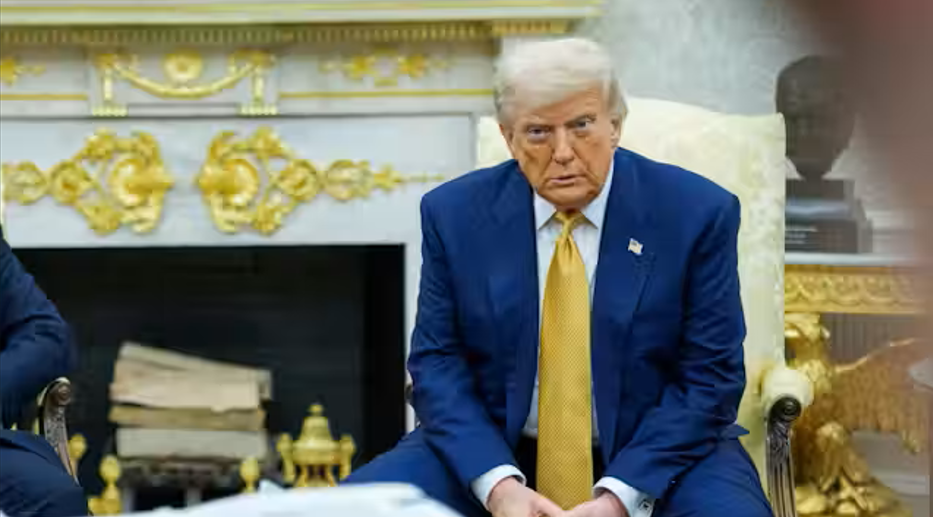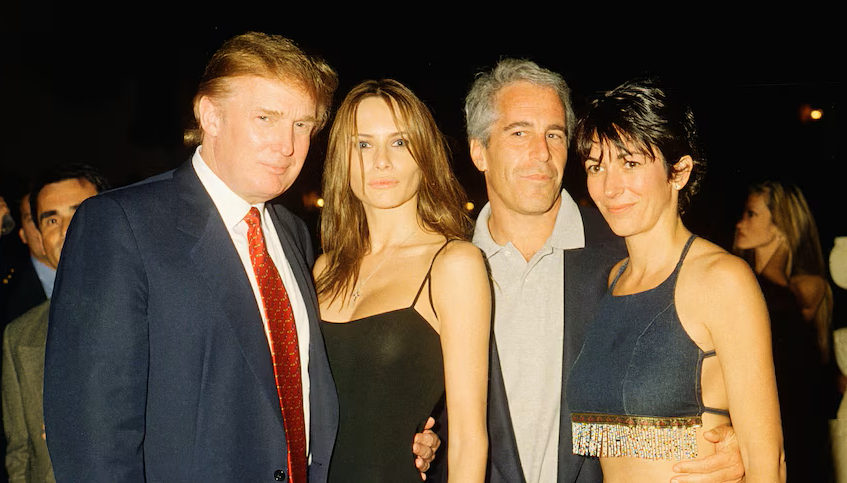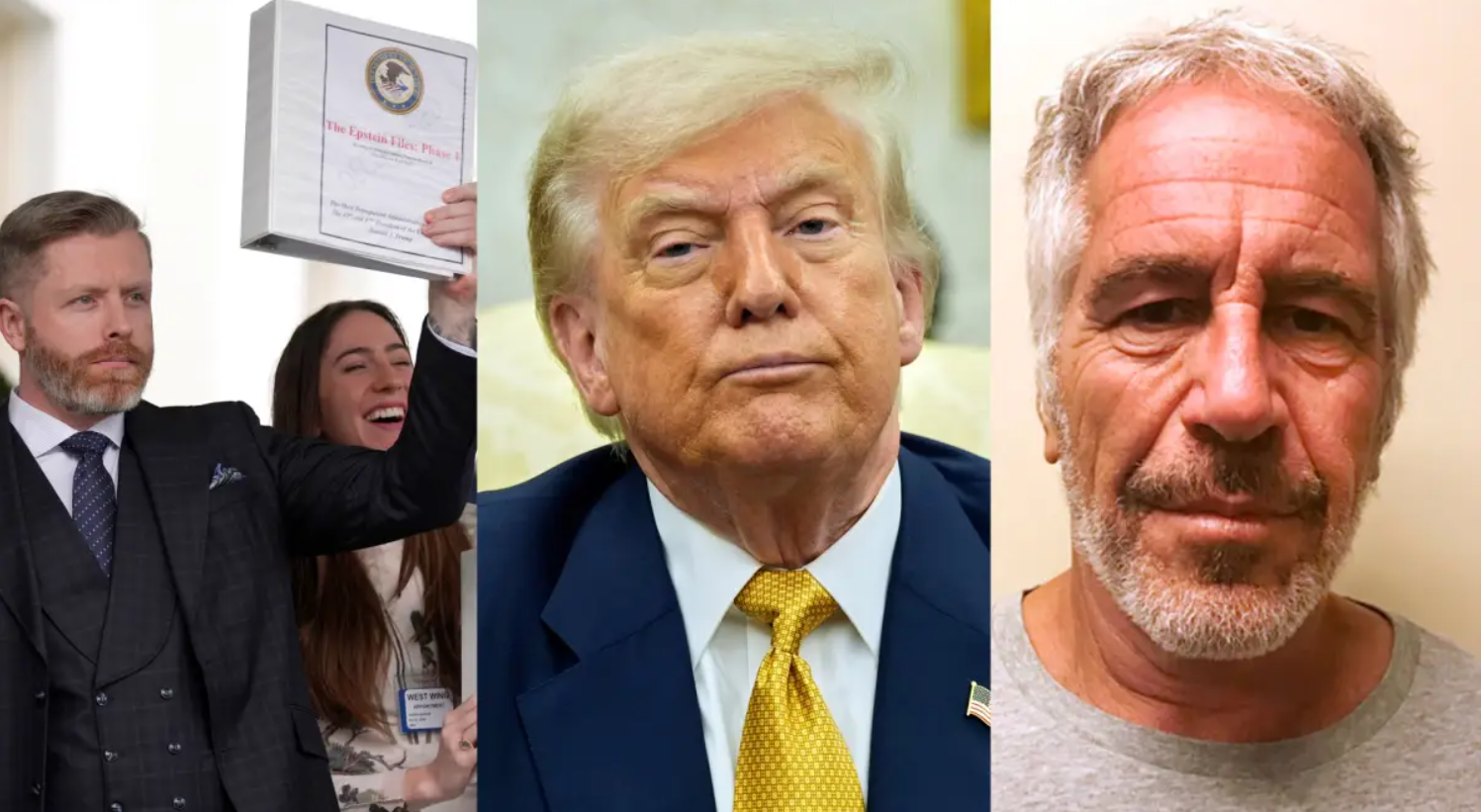The White House pushes back after reports that President Trump was named in Epstein-related documents. Here’s what the DOJ, FBI, and political leaders are saying, and how it could impact the 2024 election.
The White House is facing mounting scrutiny after a bombshell Wall Street Journal report claimed that U.S. President Donald Trump was told in May that his name appeared in documents related to Jeffrey Epstein’s criminal investigation. While officials stress that being named is not indicative of any wrongdoing, the news has reignited controversy and intensified political tensions in Washington.

Trump Briefed on Epstein Mentions
According to the Wall Street Journal, Attorney General Pam Bondi informed President Trump during a routine May briefing that he was one of many people named in justice department records connected to the Epstein case. Bondi allegedly explained that the documents contained hearsay and references to hundreds of individuals, including Trump. However, the President publicly denied being briefed about any such mention, responding “no, no” when asked about it by a reporter earlier this month.
The contradiction between the reported briefing and Trump’s denial has created confusion and added to the sense of unease around the administration’s handling of the Epstein saga.
White House Denounces Report
In response to the revelations, a White House spokesperson dismissed the Wall Street Journal story as a “fake news story.” Trump campaign spokesman Steven Cheung further called it “a continuation of the fake news stories concocted by the Democrats and the liberal media, just like the Obama Russia-gate scandal, which President Trump was right about.”
Attorney General Bondi also reiterated that the documents do not contain anything that would warrant further investigation or prosecution. FBI Director Kash Patel echoed this sentiment, accusing the media of attempting to undermine Trump with “smears and lies.”
Bondi reportedly told Trump that the Epstein-related records also included sensitive materials such as child pornography and information about victims, which, she said, should not be made public. This raises further questions about how much of the material can or should be disclosed, especially amid growing public and political pressure.
White House pushes back after reports Donald Trump is named in Epstein files https://t.co/qQfKLJ73tP
— Victoria Derbyshire (@vicderbyshire) July 24, 2025
While appearing in the files is not considered evidence of criminal behavior, it has nonetheless reignited interest in Trump’s former association with Epstein. The two were known to be socially acquainted in the early 2000s before allegedly falling out in 2004.
During his 2024 presidential campaign, Trump had vowed to release all available information related to Epstein. That promise earned him considerable support from voters demanding accountability for Epstein’s network of high-profile associates.
However, frustration has grown among those same supporters over what they perceive as a lack of action. Much of the anger has centered on the absence of a so-called “client list” — a rumored document allegedly containing the names of individuals who may have participated in Epstein’s illegal activities.
In early July, the Justice Department and FBI stated clearly that no such client list exists. This has done little to quell rumors or diminish conspiracy theories that have long surrounded the Epstein case and his mysterious death.
Jeffrey Epstein died in a New York jail cell in 2019 while awaiting trial on sex trafficking charges. His death was officially ruled a suicide, but many conspiracy theories have persisted, alleging foul play and cover-ups to protect powerful individuals.
Given the notoriety of Epstein’s connections and the secrecy surrounding the full scope of his operations, the public remains skeptical. The fact that Trump’s family members’ phone numbers were reportedly included in some of the records distributed earlier this year has only added fuel to the fire.

Legal action surrounding the release of Epstein-related files continues to escalate. On Wednesday, a federal judge in Florida denied a Justice Department request to unseal court records pertaining to Epstein’s earlier prosecution in the state. Judge Robin Rosenberg ruled that doing so would violate grand jury secrecy laws.
“The court’s hands are tied,” said Rosenberg, an Obama-era appointee, in her 12-page ruling.
Additionally, she declined to transfer the matter to New York, where judges are separately reviewing whether to unseal records linked to Epstein’s 2019 federal prosecution. Those decisions remain pending.
Meanwhile, a subcommittee of the U.S. House of Representatives voted to subpoena the Justice Department for all files related to Epstein. The vote passed with support from both parties, including three Republicans — Nancy Mace, Scott Perry, and Brian Jack — joining five Democrats.
However, the legal summons requires a signature from House Oversight Committee Chairman James Comer, a Republican, in order to take effect. Until then, the subpoena remains unenforceable.
This bipartisan move illustrates a growing demand for transparency, even as Republican leadership appears divided. Speaker Mike Johnson, in a surprising move, closed congressional voting for the summer break a day early on Tuesday, stalling legislative momentum to push for the file release.
As Epstein-related legal battles continue, attention has once again turned to Ghislaine Maxwell, the British socialite convicted of aiding Epstein in the sexual exploitation of minors. Now serving a 20-year prison sentence, Maxwell is reportedly planning to meet with Justice Department officials to share information related to the case.
Her attorney confirmed the upcoming meeting to the BBC and added that Maxwell will decide afterward whether to comply with a congressional subpoena issued by Republicans on the House Oversight Committee.
Maxwell has been summoned to testify remotely before Congress from prison on August 11. While her lawyer, David Oscar Markus, stated that Maxwell is prepared to tell the truth, House Speaker Mike Johnson expressed skepticism about the credibility of her potential testimony.
“This is a person who’s been sentenced to many, many years in prison for terrible, unspeakable acts against innocent young people,” Johnson said.
The controversy has also ignited infighting within the Republican Party. Bondi, who once promised to reveal “a lot of names” and “flight logs,” is now facing backlash from Trump supporters over her assertion that no incriminating client list was found. Her apparent reversal has led some in the MAGA community to call for her resignation.
Democrats, on the other hand, have seized on the Republican disarray to accuse the Trump administration of orchestrating a cover-up. They argue that the president’s team is attempting to downplay damaging information and limit public access to crucial files.
As the Epstein saga drags on, the political and legal implications continue to unfold. With judges, lawmakers, and media outlets vying for access to secretive files, and with the possibility of Maxwell’s congressional testimony on the horizon, the stakes remain high for all involved — especially President Trump.
Whether the public will ever get full transparency on Epstein’s network and its possible ties to political elites remains uncertain. What is clear, however, is that the issue will continue to loom large in the national conversation as the 2024 election cycle intensifies.
Also Read :
Who Is Desiree Leigh Grace? New Jersey’s US Attorney Fired Just Minutes After Appointment
Chronic Venous Insufficiency Diagnosis: How Serious Is Trump’s Condition?
GENIUS Act Passes Crucial Vote Despite Trump’s Ineffective Crypto Council

